42 tanabe sugano diagram
d2 Tanabe-Sugano Diagram 1A 1E 1g g 80 3A 2g 70 60 1T 1g 1T 1S 2g 3T 50 1g E/B 40 3T 2g 1A 1g 30 1G 20 1E 3P g 1D 1T 2g 10 3F 3T 0 1g ∆o/B 0 10 20 30 40 d3 Tanabe-Sugano Diagram 4T 2 1g A2g 80 70 2A 1g 4T 60 1g 50 4T 2g E/B 40 2F 2T 2g 30 2T 1g 20 2E 2G g 4P 10 4F 4A 0 2g ∆o/B 0 10 20 30 40 50 d4 Tanabe-Sugano Diagram 3A 1 2g A2 Tanabe-Sugano diagram for d2 octahedral complexes 2/26/2019 12 13. Advantages over Orgel diagrams • Tanabe-Sugano diagrams can be used for both high spin and low spin complexes, unlike Orgel diagrams which apply only to high spin complexes. • In a Tanabe-Sugano diagram, the ground state is used as a constant reference, in contrast to ...
d7Tanabe-Sugano Diagram E / B ∆o/ B 4F 2G 2Eg 2T1g 2A1g 2T2g 4P 4A 2g 4T 1g ( 4P) 4T 2g 4T 1g ( 4F) Complexes with d4-d7 electron counts are special •at small values of ∆o/B the diagram looks similar to the d2diagram •at larger values of ∆o/B, there is a break in the diagram leading to a

Tanabe sugano diagram
2. The Tanabe Sugano diagram of the complex along with the absorption spectrum is shown below (figure 5). Figure 5: Tanabe-Sugano diagram and absorption spectrum for complexes with d7 configuration In this case the free ion term of ground state is 4F which splits into three states of same spin multiplicity namely 4T 1g, 4T 2g and 4A 2g. The ... A step-by-step tutorial on assigning the transitions in the UV-vis spectrum of a d7 system using a Tanabe-Sugano Diagram. Tanabe-Sugano diagrams are used in coordination chemistry to predict absorptions in the UV, visible and IR electromagnetic spectrum of coordination compounds. The results from a Tanabe-Sugano diagram analysis of a metal complex can also be compared to experimental spectroscopic data. They are qualitatively useful and can be used to ...
Tanabe sugano diagram. Answer the following questions, based on this d4 Tanabe-Sugano diagram. 1. What does the vertical line at about 27 /B represent? 2. What does the x-axis of the plot represent? 3. To which excited states (using. Question: Answer the following questions, based on this d4 Tanabe-Sugano diagram. TanabeSugano. A python-based Eigensolver for Tanabe-Sugano- & Energy-Correlation-Diagrams based on the original three proposed studies of Yukito Tanabe and Satoru Sugano for d 2-d 8 transition metal ions:. On the Absorption Spectra of Complex Ions. A series of JAVA applets of Tanbe-Sugano diagrams were developed by Prof. Robert Lancashire at the University of the West Indies. These diagrams allow students to determine delta o /B values based on ratios of peak energies without the pain of rulers and drawing lines. There are also features that allow a person to input values and automatically calculate certain parameters. TanabeSugano. A python-based Eigensolver for Tanabe-Sugano- & Energy-Correlation-Diagrams based on the original three proposed studies of Yukito Tanabe and Satoru Sugano for d 2-d 8 transition metal ions:. On the Absorption Spectra of Complex Ions.
(In fact, the entire left side of the d1 diagram shows a T state while the right side shows E, and vice-versa for the d9 diagram). —Preceding unsigned comment added by 69.91.178.211 00:28, 11 November 2010 (UTC) Tanabe-Sugano diagrams. In the section "Tanabe-Sugano diagrams" the labeling of the x-axis is not correct. Download scientific diagram | Tanabe-Sugano diagram for the d 8 electron configuration in the octahedral crystal field. The notation is the same as in Fig. Orgel and Tanabe-Sugano Diagrams for Transition Metal Complexes (d1 - d9 States) It is a well-known fact that electronic transitions are always accompanied by vibrational as well as rotational changes which results in a considerable broadening of the bands in the UV-visible spectra of transition metal complexes too. Tanabe-Sugano diagram for d3 octahedral complexes. TS d3 diagram. Interpolation of the graph to find the Y-axis values for the spin-allowed transitions gives. The different free ion terms for an electron configuration have different energies due to variations in electron-electron repulsion. The different.Procedure for a Cr (III) system using ...
Download scientific diagram | Tanabe-Sugano energy-level diagram of Mn 4+ in the YAG host. from publication: Enhanced Luminescence of Mn4+: Y3Al5O12 Red Phosphor via Impurity Doping | Currently ... For other uses of "T-S diagram", see Temperature entropy diagram.. Tanabe-Sugano diagrams are used in coordination chemistry to predict absorptions in the UV and visible are used in coordination chemistry to predict absorptions in the UV and visible d2Tanabe-Sugano Diagram E / B ∆o/ B 3F 3P 3T 1g (3P) 3A 1g 3T 2g (3F) 3T 1g ~15B ~∆o ~∆o E1 E2 E3 E is the energy of the excited state relative to the ground state B is the Racah parameter for e--e-repulsion The example on page 427 of your text shows how to use this chart to fit the experimental data (E1, E2, and E3) for [V(OH2)6]3+to ... The Orgel and Tanabe-Sugano diagram for d8-configuration can be used to estimate the value of crystal field splitting energy for these transition metal complexes. (a) (b) Figure 39. The (a) Orgel and (b) Tanabe-Sugano diagrams for d8 complexes in the octahedral crystal field. Consider the example of [Ni(H2O)6]2+. 1.
Certain Tanabe-Sugano diagrams (d 4, d 5, d 6, and d 7) also have a vertical line drawn at a specific Dq/B value, which is accompanied by a discontinuity in the slopes of the excited states' energy levels.This pucker in the lines occurs when the identity of the ground state changes, shown in the diagram below. The left depicts the relative energies of the d 7 ion states as functions of ...
Tanabe-Sugano diagram for inorganic laboratory students
The baseline in the Tanabe-Sugano diagram represents the lowest energy or ground term state. The d 2 case (not many examples documented). The electronic spectrum of the V 3+ ion, where V(III) is doped into alumina (Al 2 O 3), shows three major peaks with frequencies of: ν1=17400 cm-1, ν2=25400 cm-1 and ν3=34500 cm-1.
9.12: Tanabe-Sugano Diagrams. Tanabe-Sugano diagrams are used in coordination chemistry to predict electromagnetic absorptions of metal coordination compounds of tetrahedral and octahedral complexes. The analysis derived from the diagrams can also be compared to experimental spectroscopic data. Armed with spectroscopic data, an approximation to ...
Tanabe Sugano Diagram Though it is possible to add low-spin states to an Orgel Diagram, Tanabe Sugano diagrams are commonly used instead for interpretation of spectra including both weak and strong fields. Tanabe Sugano diagrams are similar to Orgel diagrams in that they show how energy levels change with Δo, but they differ in several ways: 1.
For cases not covered by the Orgel diagrams, a quantitative Tanabe-. Sugano diagram and estimation of the Racah parameter are required. Page 25. Jahn-Teller ...29 pages
Print the appropriate Tanabe-Sugano diagram and locate where the ratio of the second to first peak matches that found experimentally. Tabulate the values of v1 / B, v2 / B, v3 / B from the Y-intercepts and Δ/B from the X-intercept. A laboratory experiment based on this is described in more detail in the CHEM2110 lab manual.
Lecture 4 May Tanabe Sugano Diagrams A Tanabe-Sugano (TS) diagram plots the energy dependence of the various ligand field states (or terms) with field strength. The strength of the ligand field is defined by Dq, which is related to the octahedral crystal field splitting by 10Dq = ∆o. The energy of the state is given by E.

Figure 8 From 1 Determination Of Cobalt Ii By Coplexation With 3 2 Thiazolylazo 2 6 Diaminopyridine And Preparation Of Chelating Resin To Separate Cobalt Ii Semantic Scholar
Notes on d7 Tanabe-Sugano Diagram!The d 7 diagram, like all such diagrams for configurations that may be either high spin or low spin, has a perpendicular line near the middle marking the change in spin state. "To the left of the line (low field strength, high spin), the ground state is 4T 1, emerging from the free-ion 4F term.
Tanabe-Sugano Diagram. Jahn-Teller Effect. In order to accurately interpret the electronic spectra of transition metal complexes, a series of diagrams.10 pages
Tanabe-Sugano Diagrams. Tanabe-Sugano diagrams are used in coordination chemistry to predict electromagnetic absorptions of metal coordination compounds of tetrahedral and octahedral complexes. The analysis derived from the diagrams can also be compared to experimental spectroscopic data. Armed with spectroscopic data, an approximation to the ...
Tanabe Sugano Diagrams M D4 D2 70 70 70 60 60 60 St2 3a2 Ti 71 50 50 40 40 30 10 10 371 10 30 20 30 20 3e 10 20 30 40 10 Sele D S 70 70 60 60 Za 512 Course Hero
On the grounds of the Tanabe-Sugano diagram of d 3 ions [191], realizing the broad emission of Cr 3+ over 1000 nm usually requires a relatively small value of Dq/B, in such a case, no PersL over ...
Lecture 4 May 11: Tanabe Sugano Diagrams A Tanabe-Sugano (TS) diagram plots the energy dependence of the various ligand field states (or terms) with field strength. The strength of the ligand field is defined by Dq, which is related to the octahedral crystal field splitting by 10Dq = ∆o. The energy of the state is given by E.
This is normally done through a Tanabe-Sugano diagram where energy is plotted against the magnitude of the crystal field splitting parameter for a d3 ion (Figure 2). Figure 2. Tanabe-Sugano Diagram appropriate for Cr(III). The vertical arrow denotes the relevant d-d transition for determining ∆o. After Tanabe, Y.; Sugano, S. J. Phys. Soc.
Tanabe-Sugano diagrams are used in coordination chemistry to predict absorptions in the UV, visible and IR electromagnetic spectrum of coordination compounds. The results from a Tanabe-Sugano diagram analysis of a metal complex can also be compared to experimental spectroscopic data. They are qualitatively useful and can be used to ...
A step-by-step tutorial on assigning the transitions in the UV-vis spectrum of a d7 system using a Tanabe-Sugano Diagram.
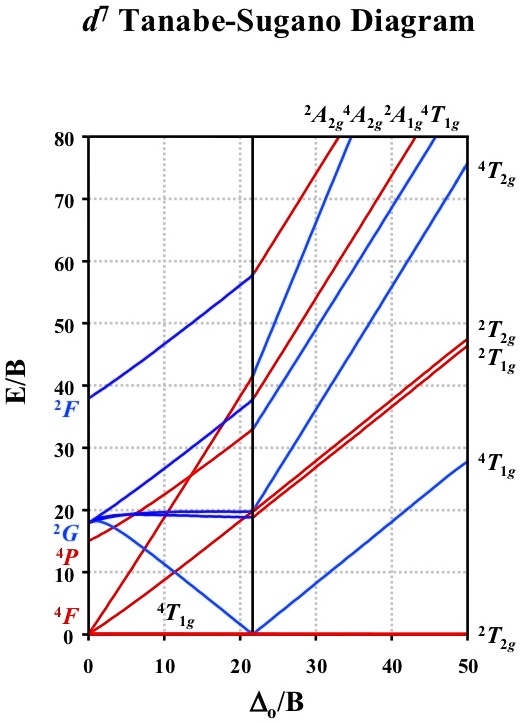
Solved Tanabe Sugano Diagram 2azg Azg Alg Tlg Atwa 80 70 60 50 2t2g Tig 2 40 2f 30 Tig 3 8 4t 10 20 30 Ajb 2t2g 50 40
2. The Tanabe Sugano diagram of the complex along with the absorption spectrum is shown below (figure 5). Figure 5: Tanabe-Sugano diagram and absorption spectrum for complexes with d7 configuration In this case the free ion term of ground state is 4F which splits into three states of same spin multiplicity namely 4T 1g, 4T 2g and 4A 2g. The ...

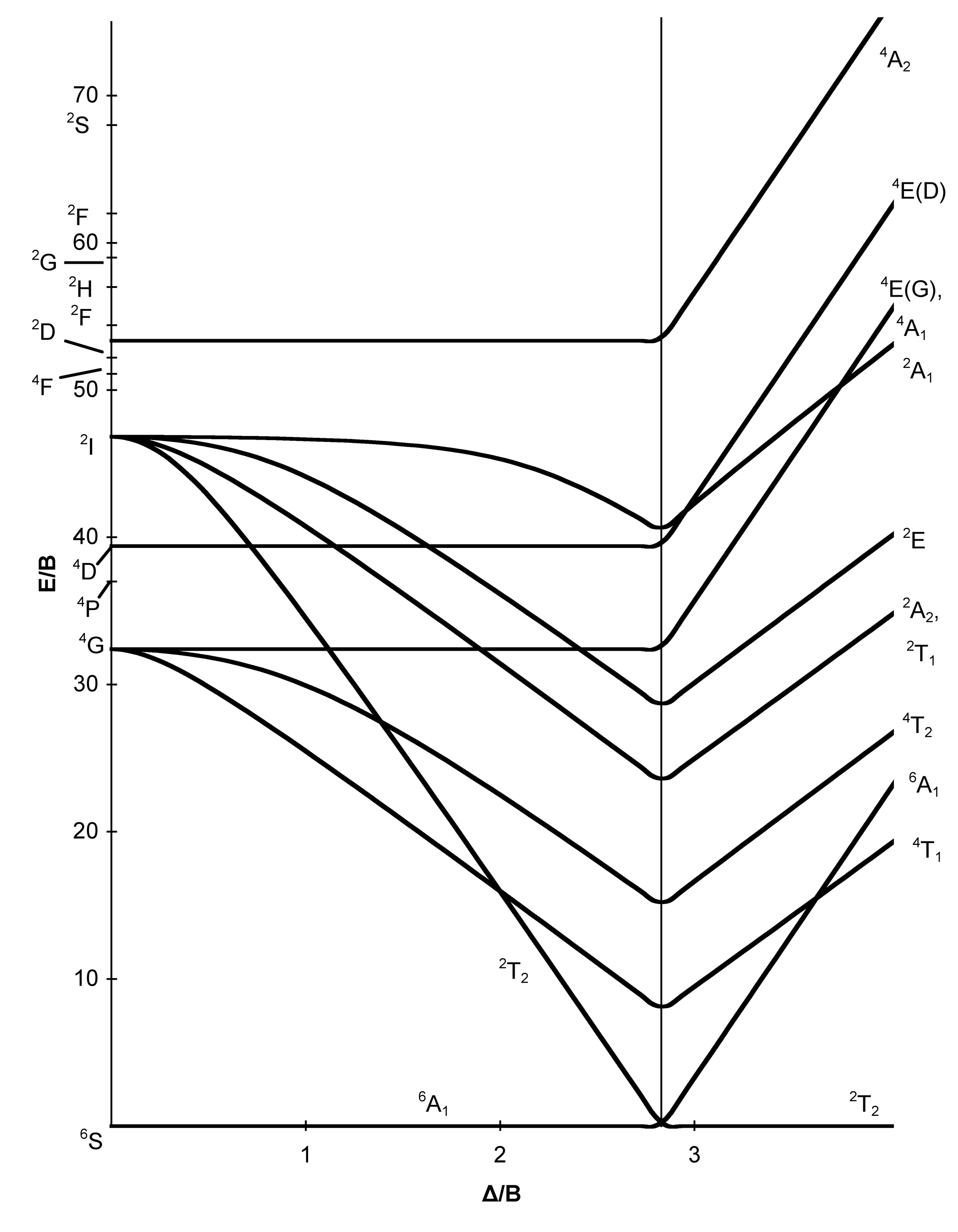

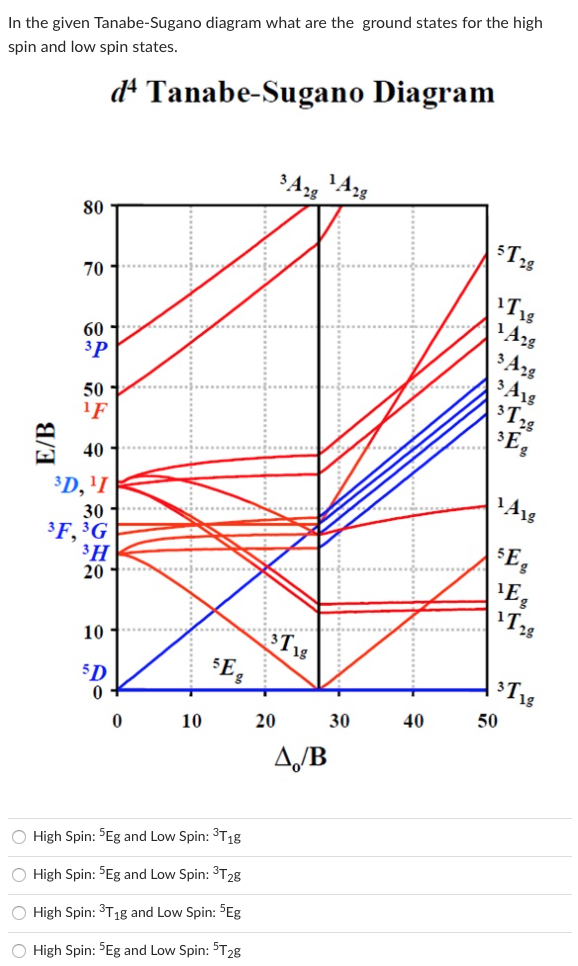
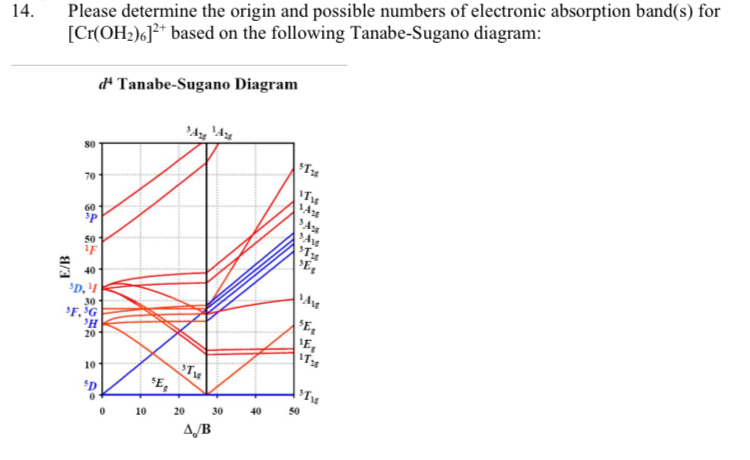
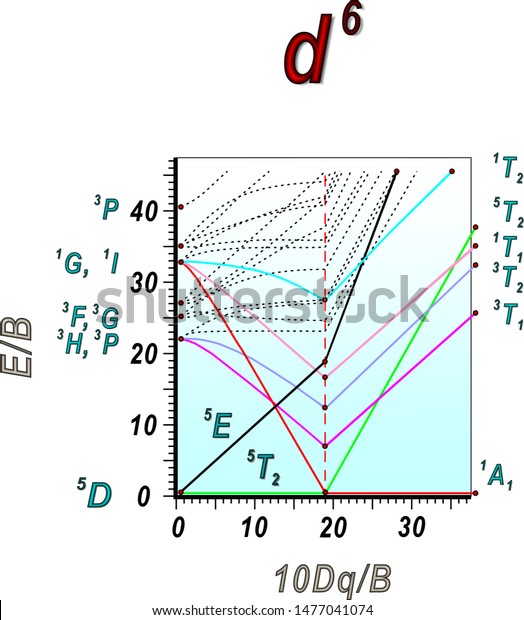

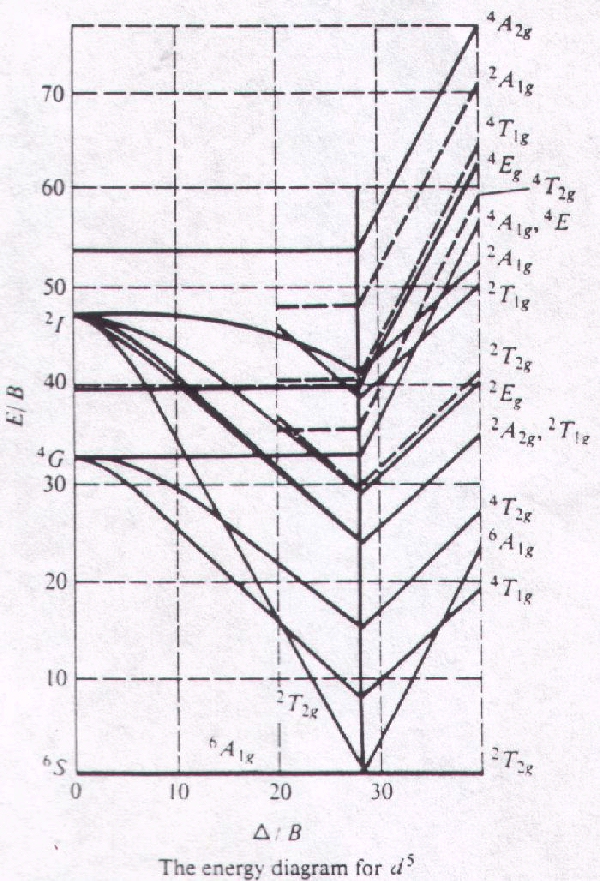


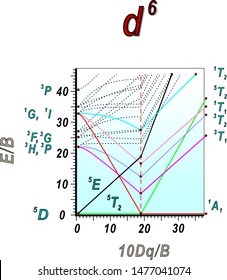

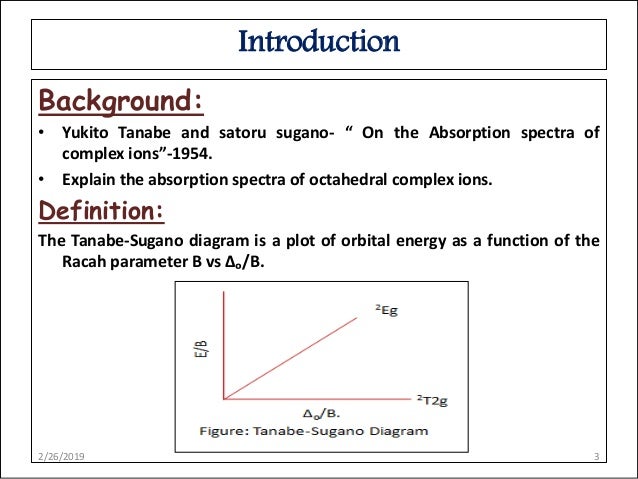
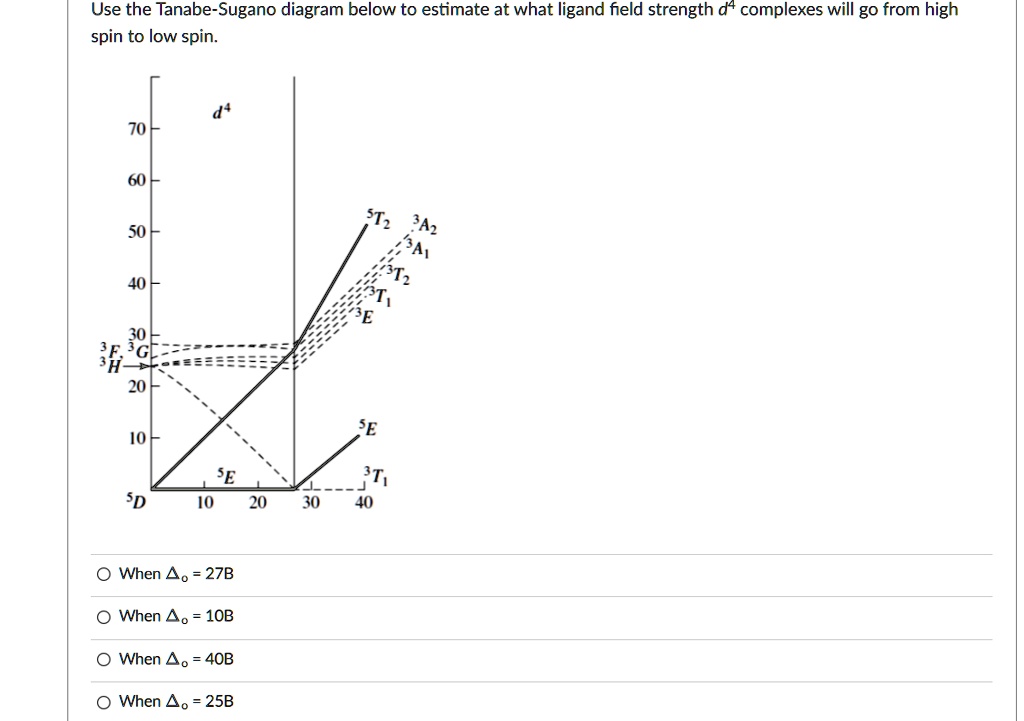
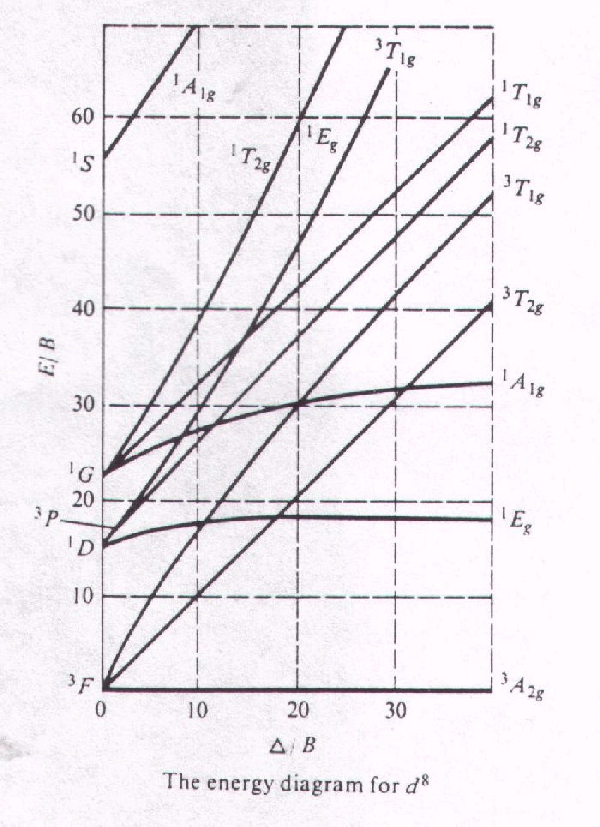
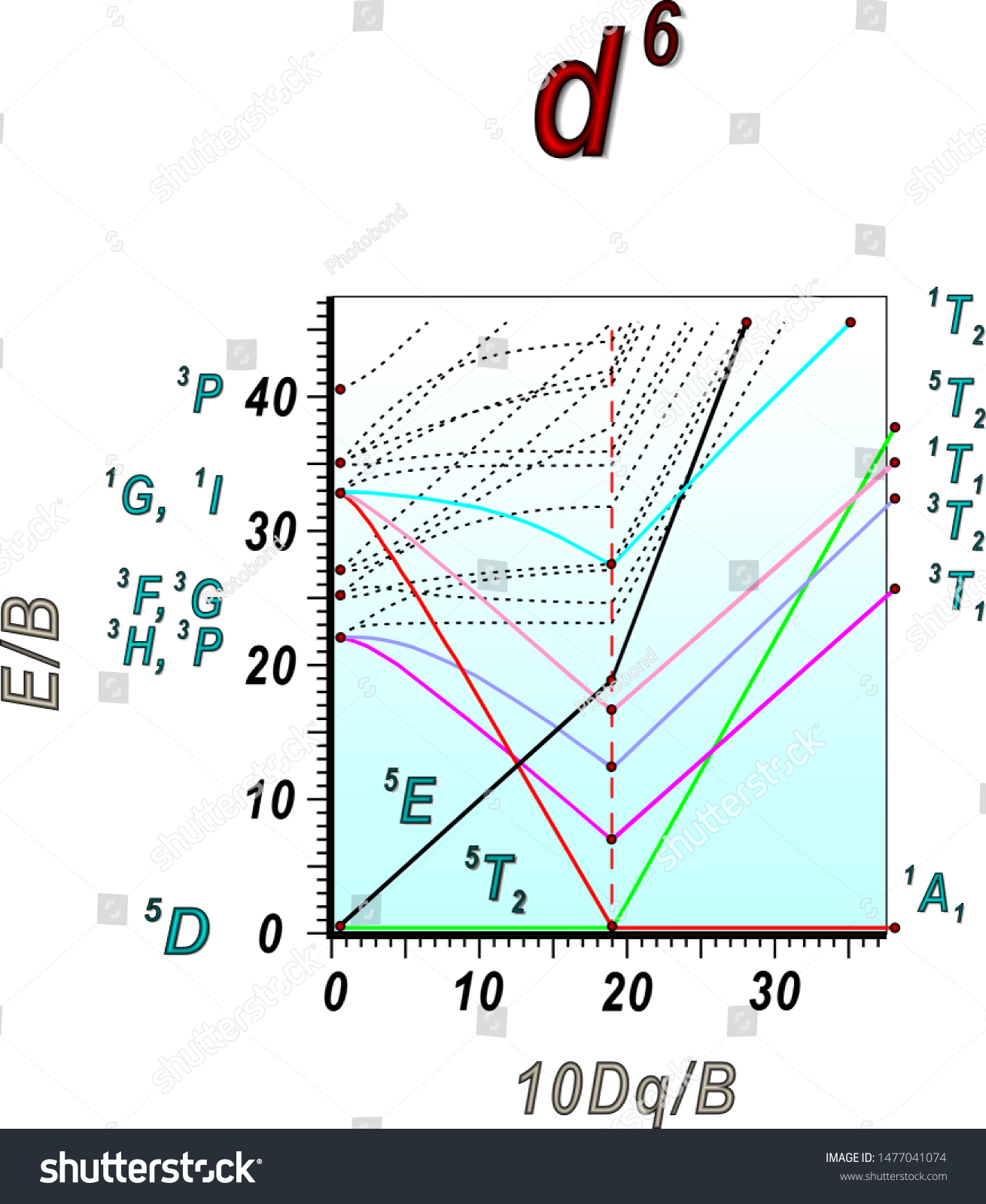

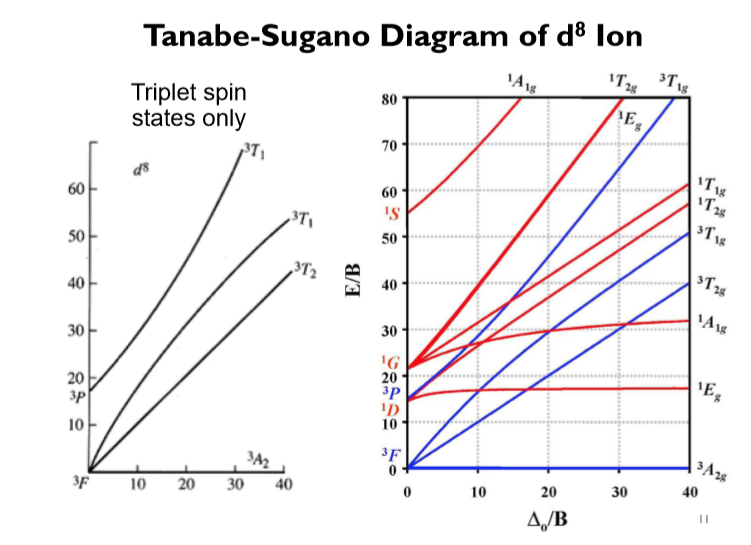
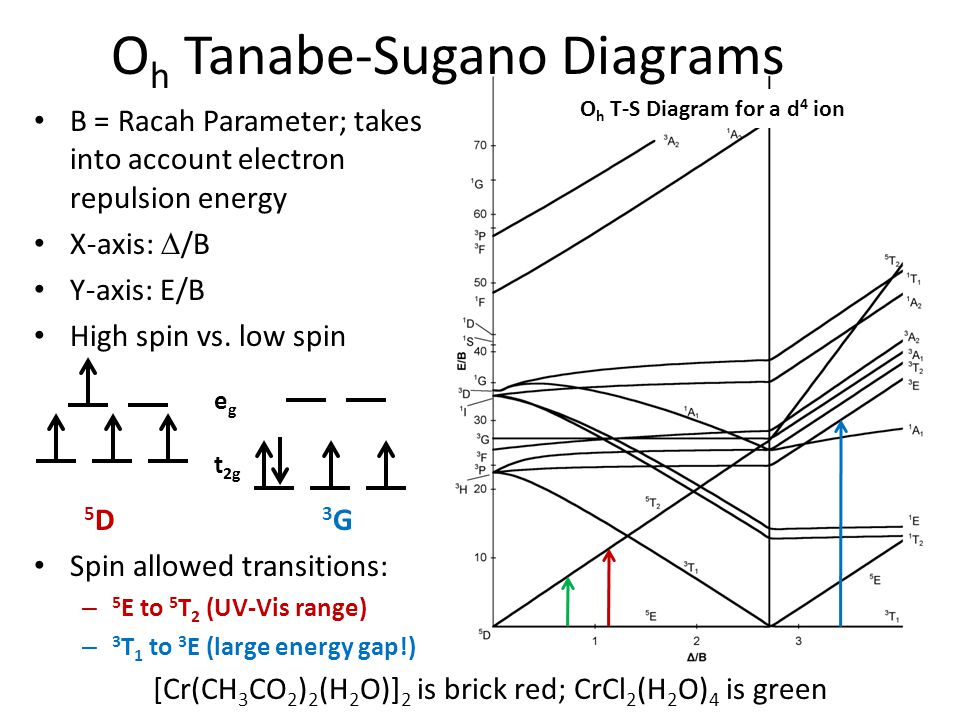


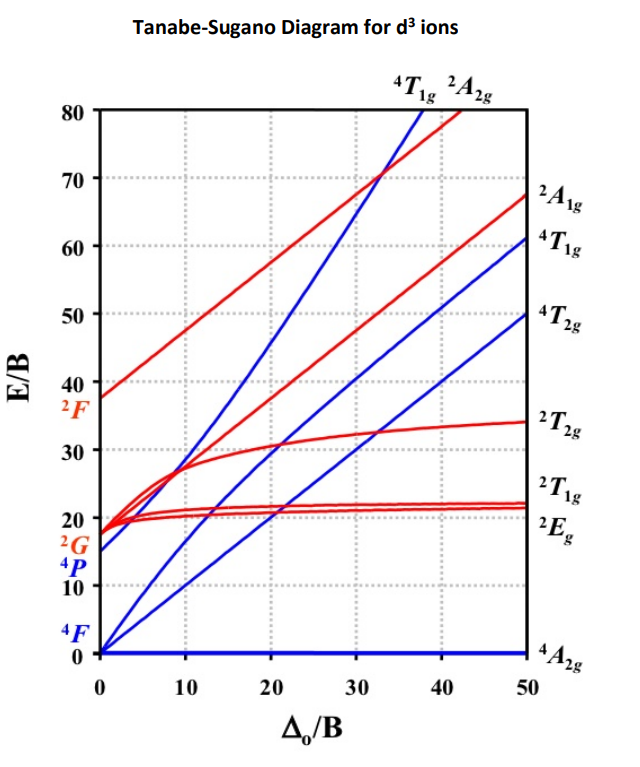




Comments
Post a Comment